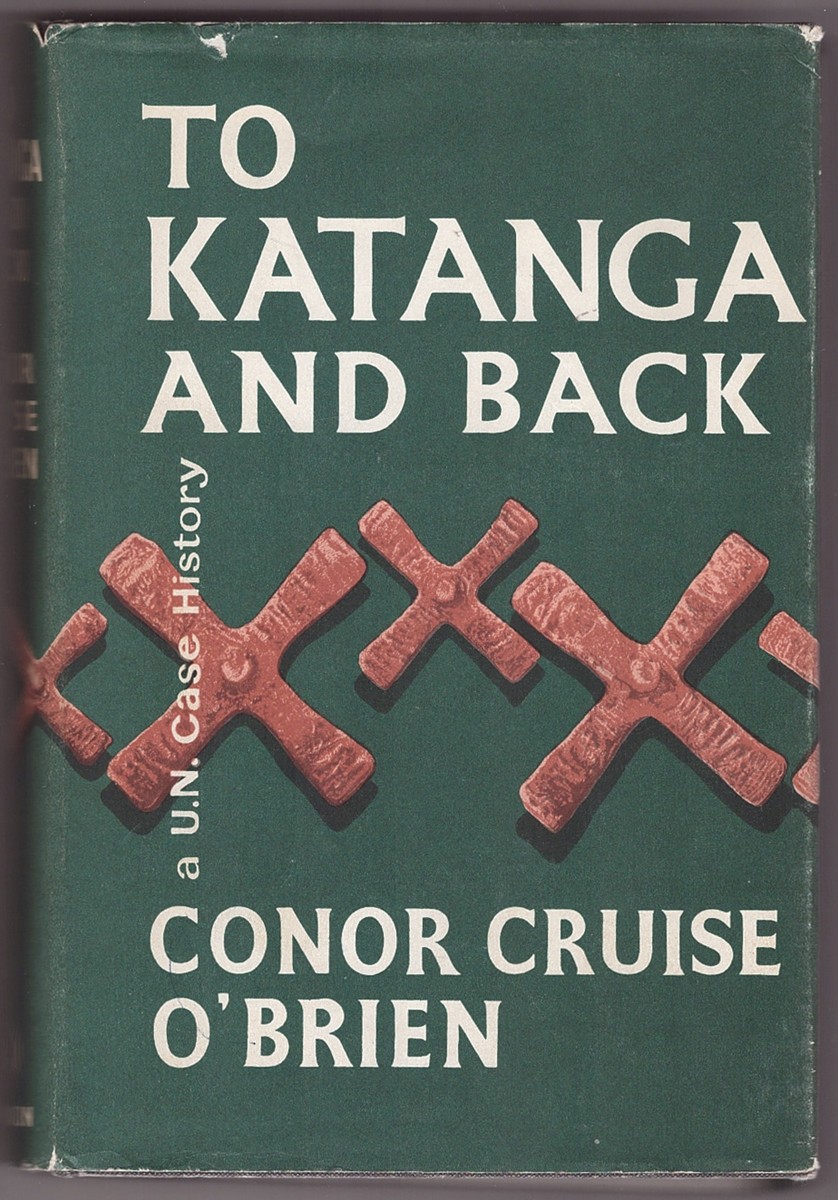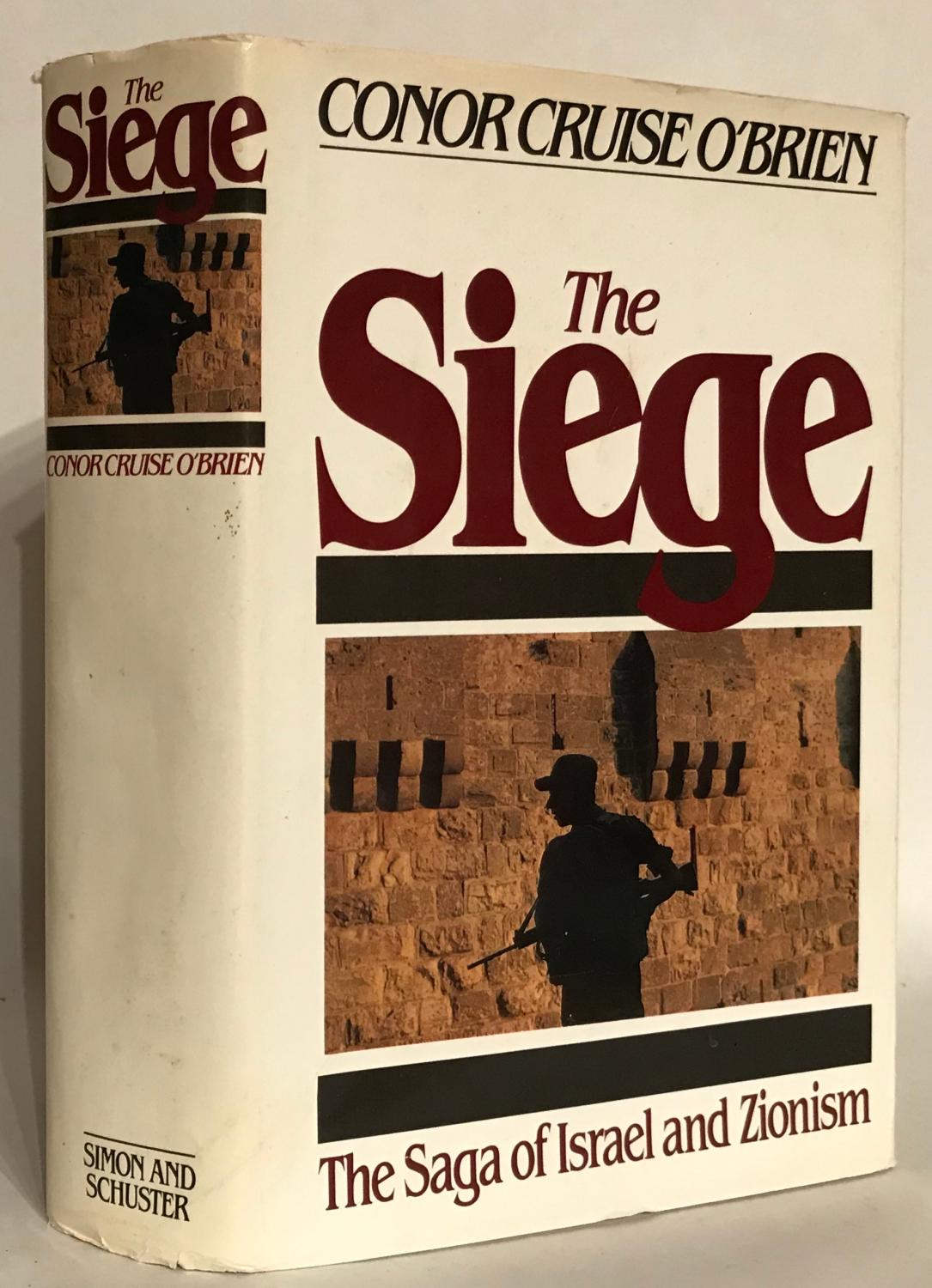Table Of Content

O'Brien's article, ‘The embers of Easter’, attacked anti-partitionism, which he argued had merely fostered bigotry and promoted suspicion between Irish nationalists and Ulster unionists.Footnote 45 Two years after the publication of ‘The embers of Easter’, O'Brien was approached with a proposition that would transform his life. In the autumn of 1968 Brendan Halligan, political director of the Labour Party, invited O'Brien to re-join the party (O'Brien had been a member as a T.C.D. undergraduate). His father, a journalist, moderate nationalist and agnostic, insisted that Conor, his only child, attend a Protestant school, although his mother — the model for Miss Ivors in James Joyce’s story “The Dead” — managed to keep him in a Catholic school until he received his first communion. He later studied history at Trinity College, Dublin, which was also Protestant. On graduating, he found a job in the civil service, initially in the finance department but soon with the department for external affairs (now called the foreign office).
Irish politician, writer, historian and academic (1917– / From Wikipedia, the free encyclopedia
Christianity Today, April 29, 1996, Bruce Barron, review of On the Eve of the Millennium, p. 34. Niall Meehan teases out some of the contradictions of a man who wrote, made and was the product of history. He developed a successful academic career later before returning to Ireland, where he became a leading player in the Labour Party in the late 1960s alongside counterparts such as David Thornley and Justin Keating.
BOOKS
Among them was Kwame Nkrumah, president of Ghana, who talked O’Brien into becoming vice chancellor of the University of Ghana. But the former Irish diplomat famously left Ghana in disgust after three years. He had clashed over academic freedoms with the economically and politically embattled Nkrumah, who was also the university’s chancellor. Characters in the works of Irish writer James Joyce were based on several of his family members, including his mother.
Eleanor Coppola, matriarch of the Coppola filmmaking family, dies at 87
You know how I feel, I think, and you and I are both a bit dumb about expressing such feelings. It's true that you are both exceptionally sensitive and exceptionally imaginative, so that you must have suffered even more acutely than most people would under the initial impact of this thing. But you also have unusually deep inner resources, moral, emotional, and intellectual, great powers of recuperation, reflection and enjoyment, and also the mysterious, indestructible and versatile capacity we vaguely call humour (Migrant, 208).
Conor Cruise O'Brien dies at 91; Irish author became a prominent diplomat - Los Angeles Times
Conor Cruise O'Brien dies at 91; Irish author became a prominent diplomat.
Posted: Sat, 20 Dec 2008 08:00:00 GMT [source]

Incomprehensibly, he failed the Irish civil service entrance examination, but passed on his second attempt in 1942 and joined the department of finance where he spent two years before moving to the department of external affairs (now foreign affairs). In view of O'Brien's later stances towards Northern Ireland and Republicanism, it is rather ironic to note that in the late 1940s he worked energetically in the Irish government's campaign against partition. Meanwhile, he tried his hand at writing poetry, which was tactfully rejected by Sean O'Faolain, editor of Bell magazine, but he soon made his mark as a critic and commentator. With the election of the first inter-party government in 1948, Seán MacBride (qv) was appointed minister for External Affairs.
Most viewed
In a sequence of events which originated in the proclamation of Ireland as a republic in 1949, an all-party campaign against partition was launched in the Mansion House in which O'Brien was to play a central role within the department. Promoted in 1951 to the rank of counsellor, he edited the bulletin Éire, and arranged the publication of pamphlets. At MacBride's behest, he wrote an anti-partitionist history of Ireland, never published and not extant, which his biographer dubbed 'the Lost Book of O'Brien' (Akenson, 134). Most remarkably in the context of his later career, he became managing director of MacBride's surreal Irish News Agency, established by statute to engender a flow of propaganda in favour of Irish reunification in the international press. In 1966, O'Brien accepted an invitation from Owen Dudley Edwards to contribute to a special supplement of the Irish Times to mark the fiftieth anniversary of the Easter Rising of 1916.
Conor Cruise O'Brien, 91, Irish diplomat and writer; Paul Weyrich, conservative strategist
O'Brien was born in 1917 in Rathmines, a Dublin suburb, the only child of Francis Cruise O'Brien, a journalist who worked for the Freeman's Journal and later the Irish Independent, and Kathleen Sheehy, a teacher, feminist, pacifist and author of a book on Irish grammar. His father died when his son was 10, so the dominant influence on O'Brien was his strong-minded mother. Conor Cruise O'Brien, who has died aged 91, was a natural controversialist, probably the most pugnacious Irish intellectual since George Bernard Shaw.
Canada holds state funeral for Brian Mulroney, one of its most consequential prime ministers
His support of the second Gulf war, and his generally indulgent disposition towards the presidency of George W. Bush fils, were aberrant rather than characteristic. If his own world view had darkened in old age, his attitude towards the exponents of neo-conservatism was unfailingly sardonic. The new leader of the Labour party, Frank Cluskey, made himself spokesman on Northern Ireland. When he asked O'Brien to submit to him in advance any statement on Northern Ireland, O'Brien on 20 September 1977 resigned from the Labour parliamentary party. He would some years later go through the motions of resignation from the party itself in protest against the Anglo–Irish agreement, by which time his membership had already lapsed; he rejoined in 2005.
Later he went to Sandford Park, nominally secular but in effect imbued with the Protestant ethos. His mother's influence had made him fluent in Gaelic, and he won a sizarship to study Irish and French at Trinity College, Dublin. O'Brien was a brilliant student and won a scholarship at the end of his first year, which brought an allowance of £30 a year and rooms in college – a coveted privilege – at half price. His roommate was Vivian Mercier, later a professor of English literature and author of books about Beckett and the Irish comic tradition. Not even O'Brien's denigrators, however, could deny that he was an intellectually formidable figure and a man who commanded attention in many countries.
"His political views were not always in accordance with those of my own party over the years, but I never doubted his sincerity or his commitment to a better and more peaceful Ireland," Cowen said. Tributes poured in from Dublin's political, academic and literary establishment for a man who championed unpopular causes, relished enemies and arguments, and challenged Ireland on its twin devotions to nationalism and Roman Catholicism. Please list any fees and grants from, employment by, consultancy for, shared ownership in or any close relationship with, at any time over the preceding 36 months, any organisation whose interests may be affected by the publication of the response. Please also list any non-financial associations or interests (personal, professional, political, institutional, religious or other) that a reasonable reader would want to know about in relation to the submitted work.
Although he was a fierce advocate of his homeland, O’Brien was a strong critic of Irish Republican Army violence and of what he considered the romanticized desire for reunification with Northern Ireland. Many still believe that O'Brien was at his best as an academic historian, and that the book Parnell and his Party, which grew out of a student thesis, is his most valuable work. A Concise History of Ireland, published in 1972 under the joint names of himself and his second wife, is a useful "potted" survey and has gone through several editions.
Meanwhile, he divorced his wife and married MacEntee, and they adopted two Congolese children. After the 1973 general election, Cruise O'Brien was appointed Minister for Posts and Telegraphs in the 1973–77 Labour-Fine Gael coalition under Taoiseach Liam Cosgrave.


No comments:
Post a Comment